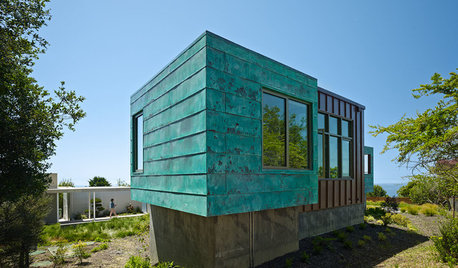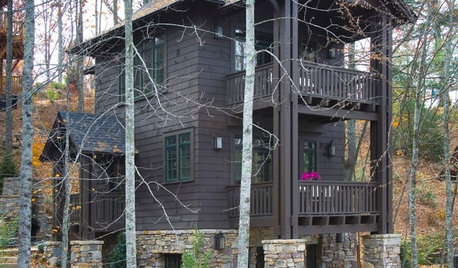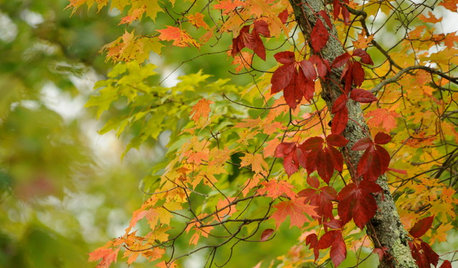Is this a green or a brown?
silent88
11 years ago
Related Stories

GREENColor Combinations: Brown and Green
Take Your Cue from Nature for the Most Classic Color Combination of All
Full Story
DESIGN DICTIONARYPatina
When metal meets weathering, naturally or not, it might take on a green or brown patina
Full Story0

HOLIDAYSA Violet, Brown, Bronze and White Holiday
7 Great Reasons to Deck the Halls With Unconventional Colors
Full Story
GREENFavorite Color Combinations: Celery and Chocolate
Accent your space with a delicious mix of light green and dark brown
Full Story
CURB APPEALWhen to Paint Your House Brown
Nature loves brown, from rich soil to sunlit sand, and so do home exteriors with a traditional or Craftsman bent
Full Story
GREENOlive Green: Sophisticated or Drab?
Thumbs Up or Thumbs Down: Are These Earthy Greens For You?
Full Story
GREEN8 Green Palettes Worthy of Envy
Softly neutral or bold and bright, green is a surprisingly versatile partner for other colors and many design styles
Full Story
HOLIDAYS15 Spectacular Christmas Palettes Beyond Red and Green
Instead of dragging out holiday decorations in the same old expected colors this year, dare to consider these gorgeous alternatives
Full Story
COLORFall on the Wall: Decorating With Rich Reds, Browns and Oranges
For your interiors, take a cue from nature’s colorful seasonal offerings
Full Story
COLORBest Ways to Use the Neutral Green Color of 2015
Benjamin Moore’s Color of the Year is soft and natural
Full Story



lovestogrow
hepatica_z7
Related Professionals
San Juan Landscape Architects & Landscape Designers · Aberdeen Landscape Contractors · Arden-Arcade Landscape Contractors · Dinuba Landscape Contractors · Framingham Landscape Contractors · Lemoore Landscape Contractors · North Potomac Landscape Contractors · Saint Paul Landscape Contractors · South Farmingdale Landscape Contractors · Waltham Landscape Contractors · Eastlake Landscape Contractors · Bowie Decks, Patios & Outdoor Enclosures · Centennial Decks, Patios & Outdoor Enclosures · Des Moines Decks, Patios & Outdoor Enclosures · Salt Lake City Decks, Patios & Outdoor EnclosuresLloyd
silent88Original Author
Laurel Zito
silent88Original Author
elisa_z5
Lloyd
plaidbird
plaidbird
silent88Original Author
feijoas
silent88Original Author
plaidbird
silent88Original Author
lovestogrow
plaidbird
silent88Original Author
pnbrown
feijoas
Laurel Zito
Laurel Zito
Lloyd
luckygal
flora_uk
elisa_z5
darth_weeder
toxcrusadr
Lloyd
Laurel Zito
flora_uk
elisa_z5
flora_uk
Laurel Zito
silent88Original Author
elisa_z5
Laurel Zito
Laurel Zito
flora_uk